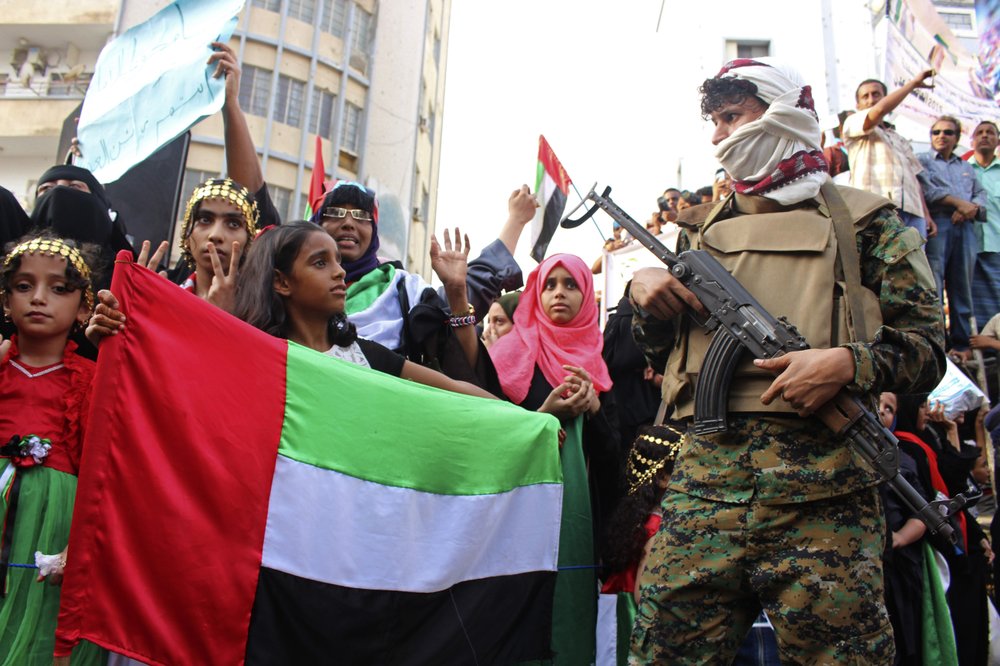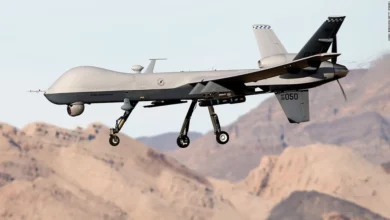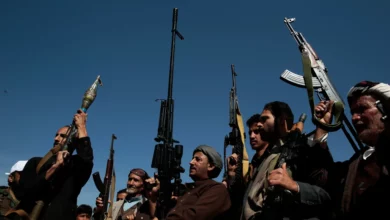Sanaa — The deal aimed at ending Yemen’s enduring political standoff suffered another setback on Sunday as President Ali Abullah Saleh refused to sign, instead choosing to level last minute additional conditions. The accord, brokered by the Gulf Cooperation Council (GCC) and backed by the United States and European Union, seeks Saleh’s removal from power 30 days after providing his official endorsement.
Gulf foreign ministers held an emergency meeting in Riyadh, the intended location for the power transfer deal’s signing, on Sunday night to discuss the crisis in Yemen, a country racked by widespread demonstrations and violence for the past three months. Despite GCC vows that all impediments to striking a deal will soon be overcome, Yemeni political analysts are now skeptical about the remaining viability of the deal.
Secretary-general of the GCC Abdul Latif al-Zayani departed Sanaa, Yemen’s capital, on Saturday and is due to return Monday night. Al-Zayani is scheduled to meet with representatives from both the Saleh-led General People’s Congress (GPC) and the Joint Meeting Parties (JMP), Yemen’s opposition coalition, JMP officials said.
“All obstacles delaying an agreement to end the political conflict in Yemen would be removed soon,” the GCC said in a statement.
Opposition figures, however, accuse the Yemeni strongman, an adept political survivor who has held office for 33 years, of biding time to eventually shirk the agreement in an attempt to retain power. Saleh’s most recent maneuver came on Saturday as he refused to sign the accord as Yemen’s president but rather in the capacity of GPC head.
“Our opponent is not the ruling party,” said Sultan al-Atwani, secretary-general of Al-Nasserite party and one of the JMP leaders. ”Saleh has to sign it as the head of the executive power and the responsible party for what’s happening in the country.”
“We don’t demand the ruling party to leave. We demand Saleh as the president of the country leave. He approved it [the agreement] from the beginning so he needs to complete the agreement.”
Al-Atwani says Saleh’s refusal to sign will “uncover” his true intentions before the GCC, adding that the president will not be given another opportunity to receive immunity from prosecution, a controversial aspect of the deal vehemently decried by protesters in the country.
JMP officials remained circumspect over the deal, sticking to their previous stance of refusing to sign before Saleh lends his endorsement.
A political officer at one of the GCC embassies in Sanaa, who requested anonymity, told Al-Masry Al-Youm each political faction in Yemen holds strong reservations towards the deal. The officer also said Islamic extremism will grow and policies will, in turn, shift in the wake of the reported killing on Saturday night by US operatives of Osama bin Laden, the head of Al-Qaeda and chief financier of terrorist attacks across the globe over the past two decades. The statement implies the threat of US support withdrawal for the deal aimed to oust Saleh, seen in the West as a bulwark against an expanding haven for Al-Qaeda in Yemen.
Presidential information officer Ahmed al-Sofi confirmed to Al-Masry Al-Youm Saleh demanded the inclusion of additional components to the deal. JMP officials, including former head Yassen Saeed No’man, and GPC deputy Abdul Kareem al-Iryani crafted the initial agreement with the influence of a presidential consultant, not the president, according to al-Sofi.
“The president wasn’t involved,” al-Sofi said. “It was a political party deal from the beginning.”
Al-Sofi questioned the JMP endorsement, and the recent denunciation of the president’s decision to sign in the capacity of party head, considering their knowledge that the GPC would be conducting negotiations and not the president himself.
Among the conditions President Saleh is now pressing his rejection of the location of his signing. Saleh refuses to go to Riyadh for the event, claiming his absence from the Yemeni capital will generate more chaos.
Political analyst Ahmed al-Zurqa echoed opposition calls by claiming the presidential maneuvers are a ploy to avoid officially endorsing the deal.
“At the beginning he [Saleh] didn’t expect the JMP to accept the initiative,” said al-Zurqa. “But after they did, he now wants to create crisis.”
“It’s not Saleh’s first time to involve his party in the political crises that he started. When he declared the state of emergency he used the ruling party in parliament to declare it.”
In midst of political jockeying, violence returned to the streets of Aden, Yemen’s second largest city and primary seaport, on Monday as regime-affiliated forces clashed with protesters. The violence follows Saturday’s forcible dispersion of a protest camp in Aden that claimed the lives of four demonstrators.
”Saleh needs to start small wars now,” said al-Zurqa. “He failed to lure the JMP or the tribes to violence so now he wants to keep the people busy with violence and political crisis.”
Activist Abdurhaman Anis confirmed from Aden President Saleh deployed the military in the embattled port city. JMP officials previously pledged the continued use of violent tactics by the regime will effectively derail the agreement but failed to issue a response to Monday’s clashes.
Last week, in yet another instance of Saleh’s meddling in the logistics of the agreement, the president demanded Qatar’s absence from the initiative’s negotiations after the Gulf country said the primary target of the deal was the removal of the president. Saleh accused Qatar of inciting subversion by financing Al-Jazeera, the news network castigated by the many Arab governments, including Saudi Arabia, for its coverage of the unrest sweeping the Arab World. Al-Zurqa said Saleh is attempting to sow discord within the GCC.
“Saleh wants to make problems in the GCC countries between Saudi Arabia and Qatar by making such suggestions.”




